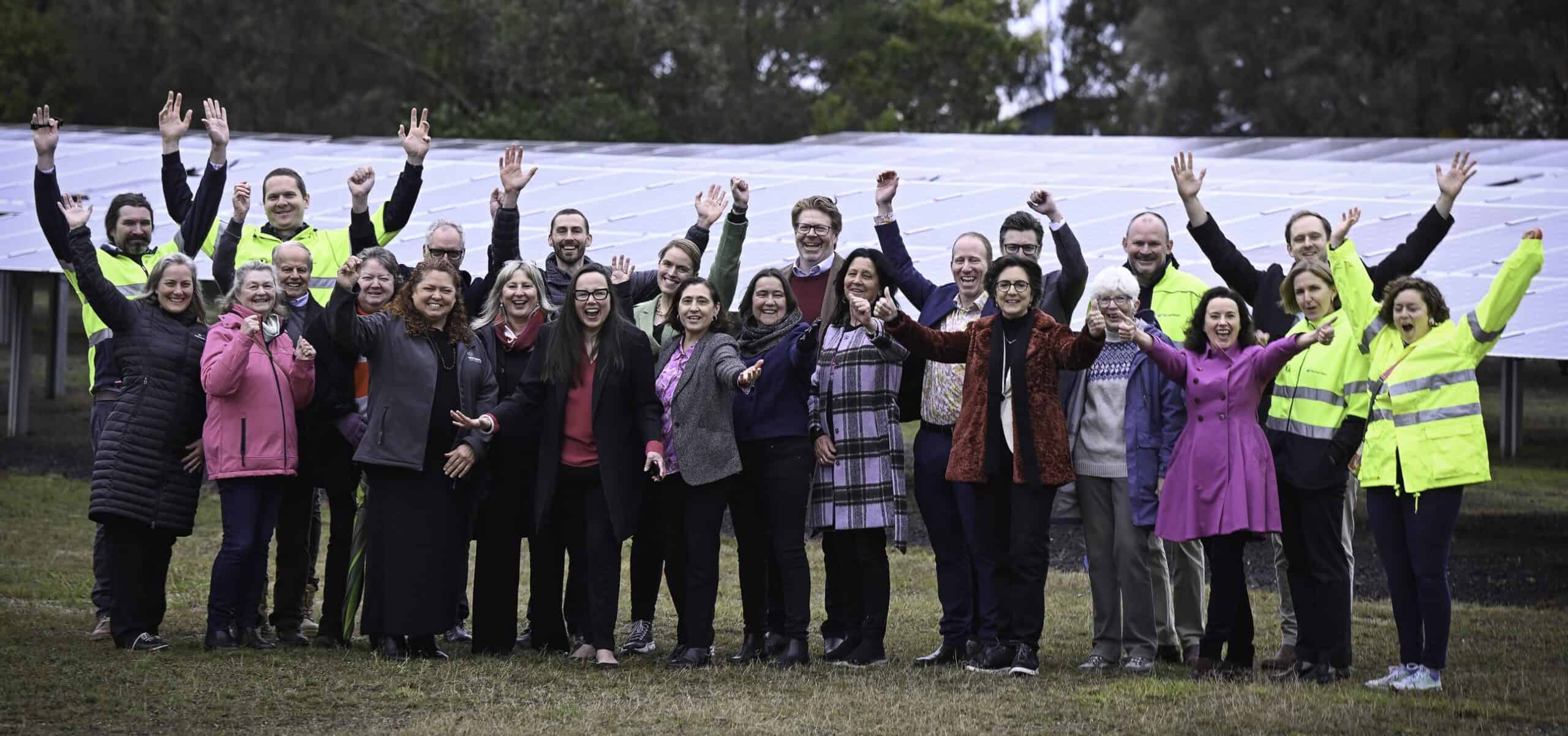
Barwon Water’s services are being delivered by net-zero emissions electricity, with all its facilities now powered by 100 per cent renewables.
In a major milestone, the organisation has reached the Victorian water sector’s aim to source all electricity from renewable sources a full year ahead of the 2025 target.
Minister for Water, The Hon Harriet Shing MP and Minister for Climate Action, The Hon Lily D’Ambrosio MP were among guests who celebrated the achievement at Barwon Water’s Torquay Tank, which features a 240-kilowatt solar array.
Since adopting its own 100 per cent renewables target in 2016, Barwon Water has invested in a diverse array of projects across the region.
Barwon Water Managing Director Shaun Cumming said the achievement was the result of a long-term commitment to sustainability and regional prosperity.
“We’re proud to achieve 100 per cent renewable electricity”. “It has been made possible through collaboration with our regional stakeholders and water sector peers, and the support of our customers”.
“This milestone reflects our commitment to a healthier environment and providing essential water and wastewater services in the most sustainable way possible”. “In addition to reducing carbon emissions, these investments are also reducing energy costs, putting downward pressure on customer bills and generating revenue from surplus electricity.”
Barwon Water’s facilities use more than 30 gigawatt hours of electricity annually, equivalent to the electricity use of about 6,000 homes. Now all its drinking water, sewerage, and recycled water services are being supplied using net-zero emissions electricity. This has been achieved by investing in about 25 megawatts of renewable electricity capacity, generating around 65 gigawatt-hours of electricity per year.
Key projects include the first megawatt-scale solar installation in the Australian water industry, the 3-megawatt Black Rock solar farm. In another Australian first-initiative, the Colac Renewable Organics Network converts organic waste from the Australian Lamb Company and Bulla Dairy Foods into renewable electricity and hot water. By doing so, it helps the water reclamation plant in Colac run on green and low-cost energy.
Barwon Water has also leveraged strategic partnerships with local organisations and other water corporations to hasten its transition to 100 per cent renewables.
The Barwon Renewable Energy Partnership – a collaboration with Barwon Health and GeelongPort – provides 17 megawatts from the Mt Gellibrand Wind Farm.
Further, Barwon Water has teamed with 11 other water corporations to secure electricity from Victoria’s Kiamal Solar Farm.
With Barwon Water now generating more electricity than needed to run its facilities, it is able to export the excess electricity back to the grid and generate revenue, while helping to protect the region’s natural environment.
The milestone is a crucial component of Barwon Water’s Strategy 2030 and its 2023-2028 Price Submission, focusing on achieving a healthier environment.
Mr Cumming said Barwon Water continued to drive progress towards the broader goal of reaching net-zero emissions.
“We are strongly focused on our 2030 target of achieving net-zero emissions across our operations and doing it in a way that reduces energy costs,” he said.
“This includes tackling direct emissions from wastewater treatment processes and transitioning to a zero-emissions vehicle fleet.”


